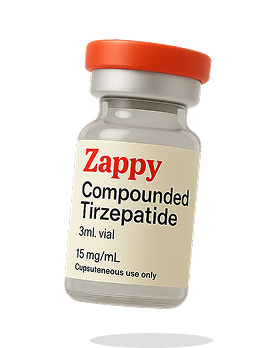Bronchitis and pneumonia are both respiratory infections that cause coughing, sneezing, runny nose, and congestion. However, bronchitis tends to be milder than pneumonia. Symptoms include a cough, chest pain, and shortness of breath. A person suffering from bronchitis might feel better after taking over-the-counter medications such as antihistamines, decongestants, and cough suppressants.
A common cold is caused by a virus that invades the nasal passages and upper respiratory tract. Common cold symptoms include a runny nose, sneezing, sore throat, headache, muscle aches, fatigue, and loss of appetite. Most people recover within a week. Some people suffer from a sinus infection, which causes similar symptoms.
Bronchitis is often confused with colds and pneumonia because they share similar symptoms. Here are some key differences between them:
- Pneumonia attacks the lung tissue, while bronchitis affects the mucous membranes lining the bronchi.
- Pneumonia symptoms are much worse than those associated with bronchitis.
- Bronchitis often leads to pneumonia.
- People with chronic conditions, such as heart disease, diabetes, and asthma, are at greater risk of developing pneumonia.
What Causes Bronchitis?
Bronchiolitis is caused by a viral infection called respiratory syncytial viruses (RSV). RSV is one of several types of viruses that cause colds. In most people, the symptoms of bronchiolitis resolve within seven days without medical intervention. However, some children develop severe lung diseases requiring hospitalization. This type of illness is acute lower respiratory tract infection (ALRTI).
The majority of children infected with RSV do not require medical attention. They recover quickly and usually shed the virus for up to 10 weeks. Some children, however, experience complications. These include wheezing, difficulty breathing, cough, fever, vomiting, diarrhea, ear infections, pneumonia, seizures, jaundice, feeding problems, and even death.
Although RSV causes mild upper respiratory illnesses in adults, it is much more serious in infants and young children. Infants younger than 12 months old are particularly vulnerable to severe RSV disease. Children older than five years also can develop severe RSV disease.
In addition to causing ALRTIs, RSV is associated with an increased risk of developing asthma later in life.
Signs and Symptoms of Bronchitis
The signs of bronchitis are often vague and difficult to diagnose. This makes it hard to know what treatment options might work best. In fact, there are several different types of bronchitis, including acute and chronic. Acute bronchitis usually lasts less than three weeks, while chronic bronchitis persists for months or even years. Here are some things to watch out for if you think you might have bronchitis.
- Fever
- Increased cough
- Sore throat
- Chest pain
- Fatigue
- Shortness of breath
Acute Bronchitis
A virus or bacteria usually causes acute bronchitis. Symptoms typically begin suddenly and worsen over several hours or days. A cough is one of the most common signs of acute bronchitis, chest pain, fever, headache, fatigue, and muscle aches. Most people recover within two weeks without treatment.
Chronic Bronchitis
Chronic bronchitis is characterized by a persistent cough that lasts longer than eight weeks. It usually occurs along with shortness of breath and frequent phlegm production. This cough often goes away within a few days but can recur over time.
There are several types of chronic bronchitis. Some patients experience wheezing, chest tightness and shortness of breath. Others experience dry cough without mucus. Still, others feel tired and weak.
According to the National Heart, Lung, and Blood Institute, about 15 million Americans suffer from chronic bronchitis. About half of those people are smokers. People who develop chronic bronchitis will likely have asthma or emphysema later in life.
Complications Associated with Bronchitis
The most common complication of bronchiectasis is pneumonia. Pneumonia occurs when bacteria or viruses spread deeper into the lung tissue. It often causes fever, chills, cough, fatigue, and shortness of breath. Other complications include abscesses, empyema (a collection of pus in one of the pleural spaces), tuberculosis, and lung cancer.
Treating Bronchitis
Bronchitis is one of the most common reasons people go to urgent care centers. In fact, according to the Urgent Care Association of America’s 2016 Benchmarking report, the most common illnesses diagnosed were acute upper respiratory infections, acute sinusitis, and acute pharyngitis.
While bronchitis isn’t necessarily easy to diagnose, it’s characterized as coughing up mucus accompanied by shortness of breath, chest pain, fever, chills, and fatigue. Other signs include a hacking cough and wheezing.
The good news is that viral infections, such as colds or influenza, cause most cases of bronchitis. Smoking is another major cause. But even if you’re not a smoker, you could still develop bronchitis if you inhale irritants like dust or fumes or if you’ve been exposed to someone else’s germs.
If you think you might have bronchitis, here are some things to consider:
- If you’re experiencing severe symptoms, call your doctor.
- Make an appointment if you don’t see improvement in a few days.
- If you have chronic lung disease, ask your doctor whether you should use antibiotics.
Bronchitis Prevention
To help prevent acute bronchitis, make sure you don’t inhale secondhand smoke. Avoid people who are sick because they might spread germs. If you catch a cold, wear a face mask to avoid spreading it. And wash your hands often.
To lower your chances of getting chronic bronchitis, make certain you get vaccinated against influenza. Acute bronchitis can sometimes lead to chronic bronchitis. So make sure you get the flu shot every year. Also, make sure you get your pertussis booster shot every ten years.
When to Seek Urgent Care for Bronchitis
Bronchitis is typically caused by a bacterial infection and usually resolves on its own within two weeks. However, some people experience lingering symptoms for longer periods. If you suspect you have bronchitis, see an urgent care clinic for a diagnosis and appropriate treatment.
- You should visit an urgent care clinic near you if:
- Your cough lingers for more than a week after other cold symptoms have resolved
- You’re coughing up colored or blood-tinged mucus
- You develop a fever with your coughing
- You’re short of breath
- Pneumonia attacks the lung tissue, while bronchitis affects the mucous membranes lining the bronchi.
- Pneumonia symptoms are much worse than those associated with bronchitis.
- Bronchitis often leads to pneumonia.
- People with chronic conditions, such as heart disease, diabetes, and asthma, are at greater risk of developing pneumonia.
What Causes Bronchitis?
Bronchiolitis is caused by a viral infection called respiratory syncytial viruses (RSV). RSV is one of several types of viruses that cause colds. In most people, the symptoms of bronchiolitis resolve within seven days without medical intervention. However, some children develop severe lung diseases requiring hospitalization. This type of illness is acute lower respiratory tract infection (ALRTI). The majority of children infected with RSV do not require medical attention. They recover quickly and usually shed the virus for up to 10 weeks. Some children, however, experience complications. These include wheezing, difficulty breathing, cough, fever, vomiting, diarrhea, ear infections, pneumonia, seizures, jaundice, feeding problems, and even death. Although RSV causes mild upper respiratory illnesses in adults, it is much more serious in infants and young children. Infants younger than 12 months old are particularly vulnerable to severe RSV disease. Children older than five years also can develop severe RSV disease. In addition to causing ALRTIs, RSV is associated with an increased risk of developing asthma later in life.Signs and Symptoms of Bronchitis
The signs of bronchitis are often vague and difficult to diagnose. This makes it hard to know what treatment options might work best. In fact, there are several different types of bronchitis, including acute and chronic. Acute bronchitis usually lasts less than three weeks, while chronic bronchitis persists for months or even years. Here are some things to watch out for if you think you might have bronchitis.- Fever
- Increased cough
- Sore throat
- Chest pain
- Fatigue
- Shortness of breath
Acute Bronchitis
A virus or bacteria usually causes acute bronchitis. Symptoms typically begin suddenly and worsen over several hours or days. A cough is one of the most common signs of acute bronchitis, chest pain, fever, headache, fatigue, and muscle aches. Most people recover within two weeks without treatment.Chronic Bronchitis
Chronic bronchitis is characterized by a persistent cough that lasts longer than eight weeks. It usually occurs along with shortness of breath and frequent phlegm production. This cough often goes away within a few days but can recur over time. There are several types of chronic bronchitis. Some patients experience wheezing, chest tightness and shortness of breath. Others experience dry cough without mucus. Still, others feel tired and weak. According to the National Heart, Lung, and Blood Institute, about 15 million Americans suffer from chronic bronchitis. About half of those people are smokers. People who develop chronic bronchitis will likely have asthma or emphysema later in life.Complications Associated with Bronchitis
The most common complication of bronchiectasis is pneumonia. Pneumonia occurs when bacteria or viruses spread deeper into the lung tissue. It often causes fever, chills, cough, fatigue, and shortness of breath. Other complications include abscesses, empyema (a collection of pus in one of the pleural spaces), tuberculosis, and lung cancer.Treating Bronchitis
Bronchitis is one of the most common reasons people go to urgent care centers. In fact, according to the Urgent Care Association of America’s 2016 Benchmarking report, the most common illnesses diagnosed were acute upper respiratory infections, acute sinusitis, and acute pharyngitis. While bronchitis isn’t necessarily easy to diagnose, it’s characterized as coughing up mucus accompanied by shortness of breath, chest pain, fever, chills, and fatigue. Other signs include a hacking cough and wheezing. The good news is that viral infections, such as colds or influenza, cause most cases of bronchitis. Smoking is another major cause. But even if you’re not a smoker, you could still develop bronchitis if you inhale irritants like dust or fumes or if you’ve been exposed to someone else’s germs. If you think you might have bronchitis, here are some things to consider:- If you’re experiencing severe symptoms, call your doctor.
- Make an appointment if you don’t see improvement in a few days.
- If you have chronic lung disease, ask your doctor whether you should use antibiotics.
Bronchitis Prevention
To help prevent acute bronchitis, make sure you don’t inhale secondhand smoke. Avoid people who are sick because they might spread germs. If you catch a cold, wear a face mask to avoid spreading it. And wash your hands often. To lower your chances of getting chronic bronchitis, make certain you get vaccinated against influenza. Acute bronchitis can sometimes lead to chronic bronchitis. So make sure you get the flu shot every year. Also, make sure you get your pertussis booster shot every ten years.When to Seek Urgent Care for Bronchitis
Bronchitis is typically caused by a bacterial infection and usually resolves on its own within two weeks. However, some people experience lingering symptoms for longer periods. If you suspect you have bronchitis, see an urgent care clinic for a diagnosis and appropriate treatment.- You should visit an urgent care clinic near you if:
- Your cough lingers for more than a week after other cold symptoms have resolved
- You’re coughing up colored or blood-tinged mucus
- You develop a fever with your coughing
- You’re short of breath










